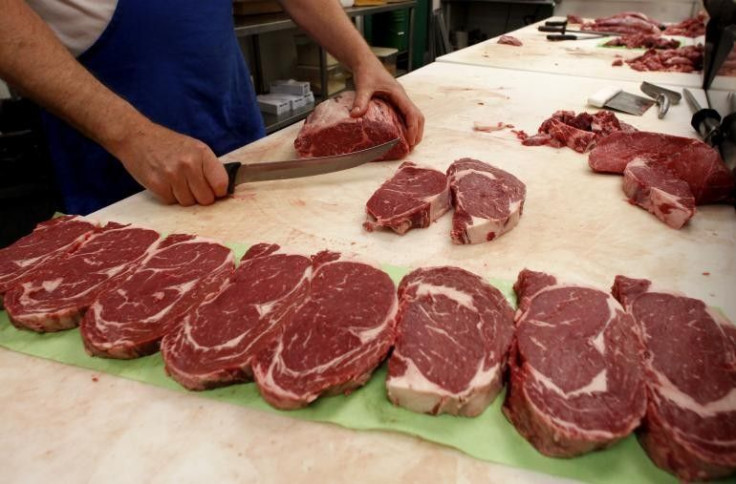Meat Heavy Western Diets Causes Global Warming, New Study
Eat Less Meat to Control Global Warming and Greenhouse Gas Emissions

A new study conducted by the scientists from the University of Cambridge and the University of Aberdeen has found that an increase in the consumption of meat would cause global warming. While the link between the two may not seem reasonable at first, their study provided a deeper understanding. The research, published in Nature Climate Change, states that an increase in the intake of meat-heavy Western diets may increase the greenhouse gas (GHG) emissions much above the global target for total GHG emission by 2050.
Researchers said that a change in the diet could be one way to save the environment from deteriorating. The study found that the increase in GHG could be due to the increase in deforestation, fertilizer use and livestock methane emissions. The report states that with more and more people turning towards meat-heavy western diets there will be more food demands and this in turn would bring more land into cultivation. This would cause deforestation that would increase carbon emissions also destroying the biodiversity. Plus the increased livestock will increase the amount of methane in the environment.
Lead researcher Bojana Bajzelj from the University of Cambridge's Department of Engineering said, "As meat consumption increases, more arable cultivation will turn over to producing feedstock for animals that would provide meat for humans and the losses at each stage are large." Bajzelj explained that as the meat consumption would increase plants would not be converted to food and so all land would be converted to agricultural land. This and land cover conversion would release more greenhouse gases. Also, it would alleviate the global water crisis, since livestock production uses a tremendous amount of water.
These greenhouse gases would change the climate and cause harm to the planet, to lessen the effects and the emission of these gases, researchers strongly advise a shift in the people's diet. The best way would be to decrease the food wasted by half and to lessen the demand for any food product that would be damaging to the environment. A shift towards a less meat and more vegetable diet would also do good, a balanced diet should be the main aim they specify.
Co-author Prof Pete Smith from the University of Aberdeen said that if we dedicate enough space to for the growth of bioenergy crops we could bring down atmospheric carbon dioxide to safe levels. The energy and industry sectors need to be de-carbonised so that they are within emission budgets, "that avoid dangerous climate change unless they made some serious changes in food consumption trends, which was practically impossible so, as well as encouraging sustainable agriculture, they need to re-think what they ate."





















